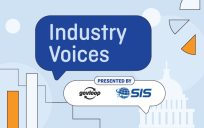New AI technology available to the federal government is creating new opportunities for efficiency across agencies. However, many federal employees lack the skills required to manage and innovate with AI tools, creating a skills gap that could challenge the government’s ability to fully utilize AI capabilities to streamline government services. By implementing a centralized AI platform, federal agencies could produce real-time insights and suggest tailored learning paths for federal employees.

A recent Pluralsight report shows that 81% of IT professionals surveyed express confidence in their ability to integrate AI into their roles; however, only 12% have substantial experience with AI. With new AI innovations on the horizon, it is important to understand that the government’s ability to harness emerging technologies will require strategic upskilling efforts for federal employees.
As AI shapes federal technology landscapes, skill gaps are becoming more evident in critical areas. Data analytics, cybersecurity, and cloud computing have been transformed by recent AI innovations, providing federal agencies with the ability to derive even more accurate insights from vast datasets, driving informed decision-making while enhancing threat detection and response capabilities.
AI has also boosted cloud solutions by optimizing resource management and enhancing scalability, making cloud environments much more efficient. However, these solutions often require specialized skills to leverage such complex technologies effectively.
The 2020 Federal Data Strategy Action Plan issued by the Office of Management and Budget (OMB) serves as a roadmap for the U.S. government to improve data use and management across federal agencies. The action plan encourages agencies to assess employee data skills and invest in training to build data literacy.
Tracking skill levels for each employee to create effective and meaningful personalized training plans is an enormous challenge for federal leaders. Additionally, agencies need to anticipate workforce changes resulting from retirements, evolving job requirements, and policy changes to provide continuous, effective services without disruption.
Rather than investing in a new platform for AI-enabled employee skills tracking, federal agencies should consider expanding the capabilities of their current service management platform. A service management platform with integrated AI capabilities could centralize and streamline federal employee upskilling efforts, ensuring that the federal workforce is prepared to meet current demands and adapt to future challenges efficiently and cost-effectively.
One of the major challenges in federal workforce upskilling is the decentralization of data. Employee performance metrics, skill inventories, and industry trends are often stored across multiple disconnected systems, making it difficult to gain a unified view of workforce capabilities. By integrating AI within a Service Management platform, agencies could analyze employee behavior in real-time, using metrics such as task completion time, work quality and project outcomes. Without centralized access to critical data points, tracking individual competencies and skill gaps may go unnoticed.
A service management platform could be used to consolidate employee skill inventories by integrating existing disparate systems. It could provide a holistic view of each employee’s strengths and areas for development, in addition to offering automation tools that use intelligent workflows, making it easier for agencies to deploy training resources where they are most needed.
Federal employees have varying skill levels and typically hold diverse roles, meaning that generic training programs don’t always meet individual employee needs. The personalized upskilling recommendations that an AI-enabled service management platform could offer would overcome the limitations of a one-size-fits-all training approach.
A service management platform enhanced with AI-powered skill mapping could be set up to recommend tailored learning paths that align an employee’s skill set with specific training opportunities. This approach ensures workforce upskilling becomes more adaptive and strategic, ensuring that workforce development investments are deployed where they have the most impact.
Marcel Shaw is a seasoned technology blogger at marcelshaw.com. With over 30 years of experience as a technical consultant for top IT companies, he has extensive experience with U.S. government agencies. Marcel has provided legal expert witness services in addition to his roles as a consultant at Novell, Dell, Ivanti, ServiceNow and others. His expertise covers network/IP infrastructure, security and compliance, cloud, document management, AI, and IT Service Management. A Brigham Young University graduate, Marcel offers valuable technology insights and best practices for IT professionals.





Leave a Reply
You must be logged in to post a comment.